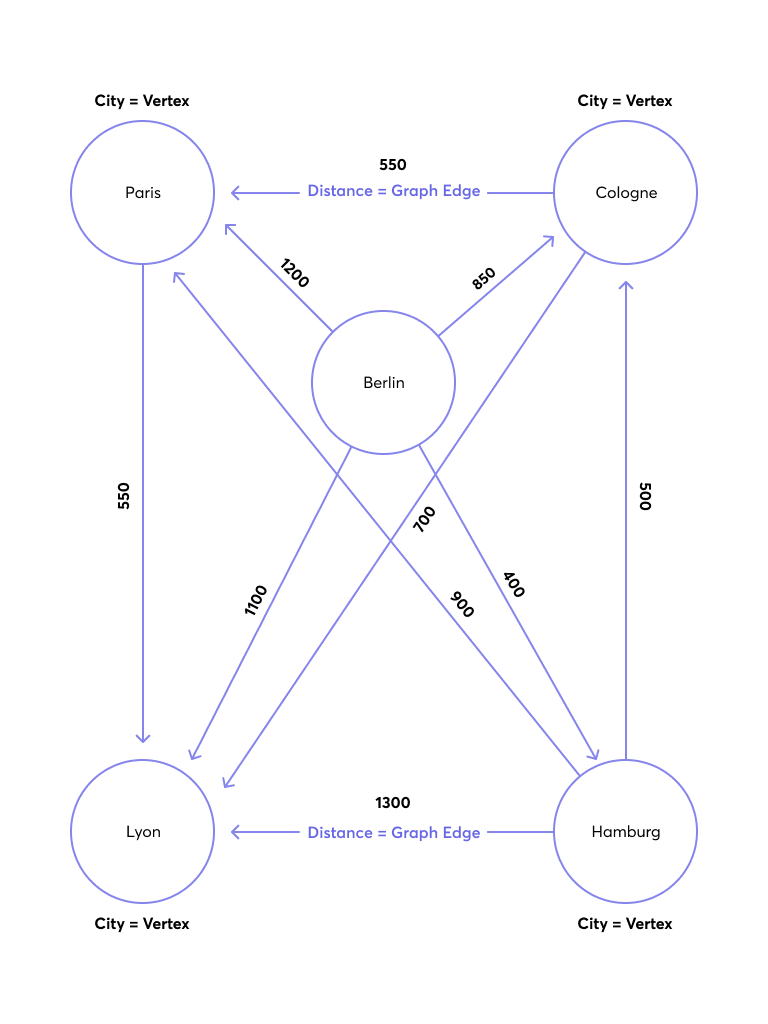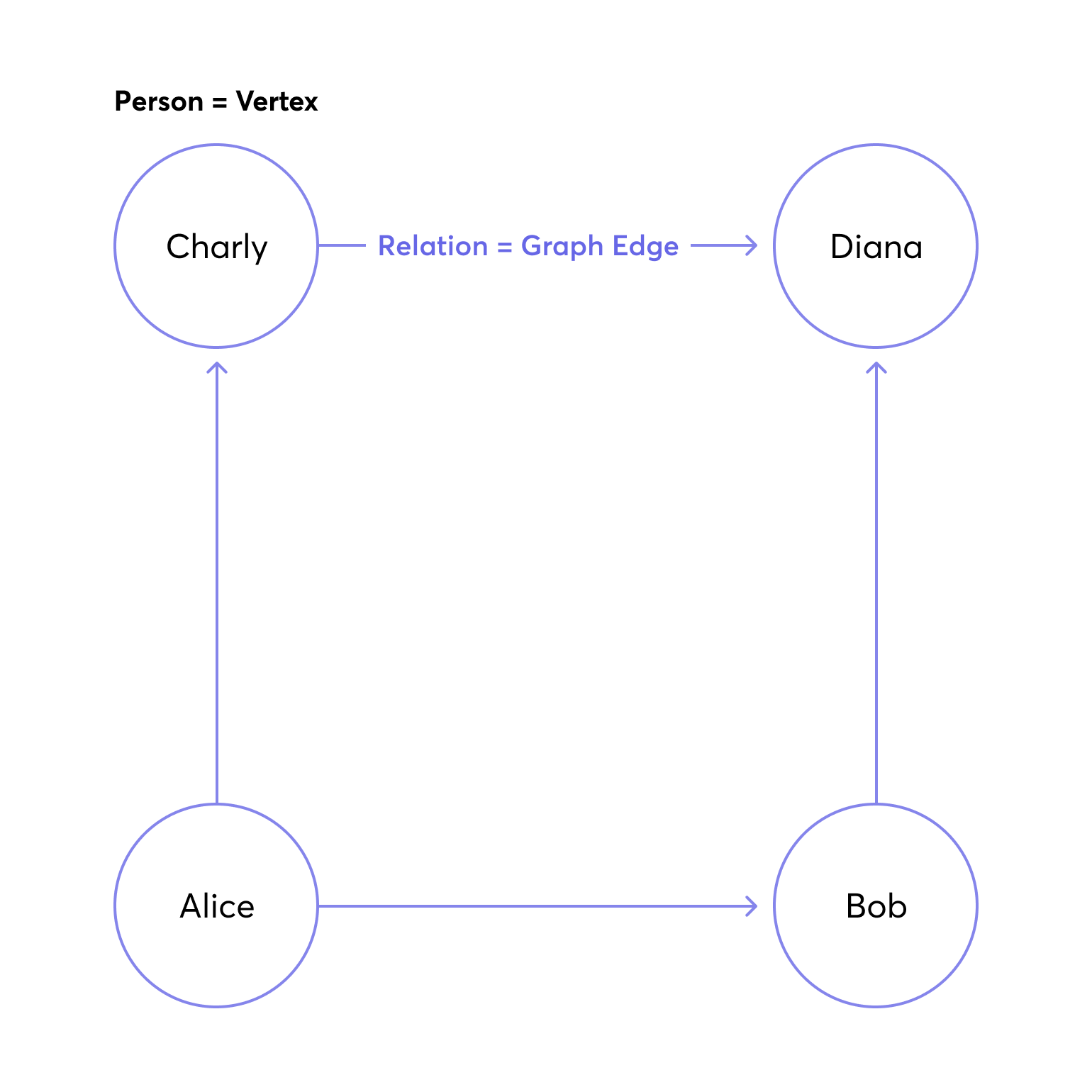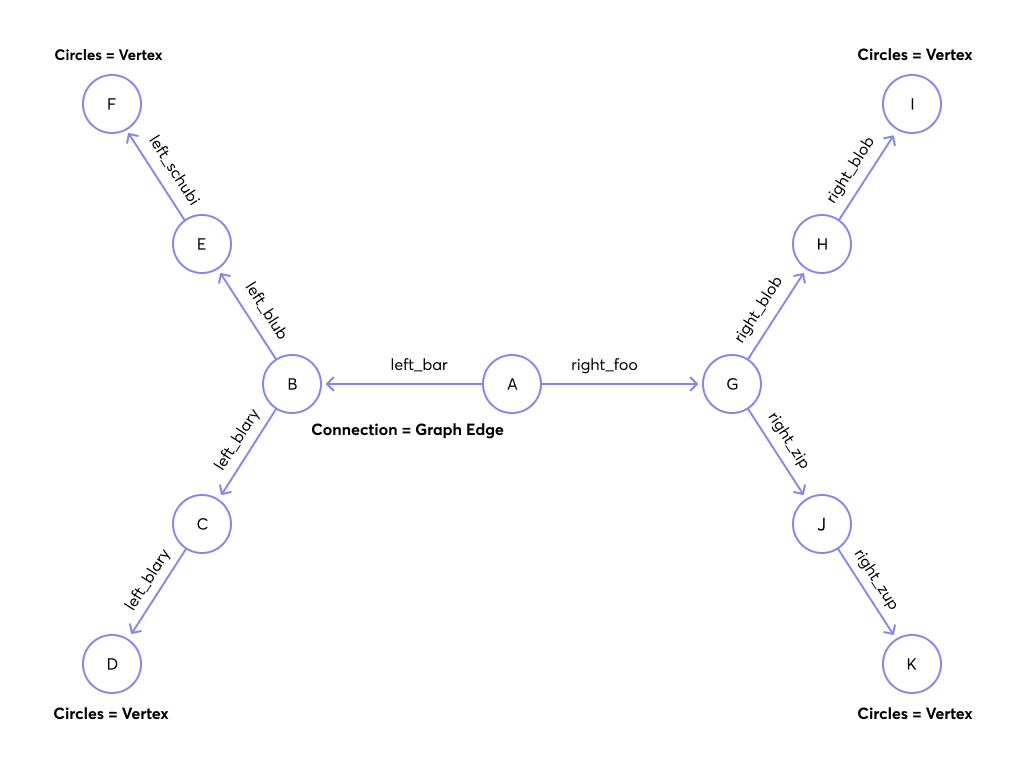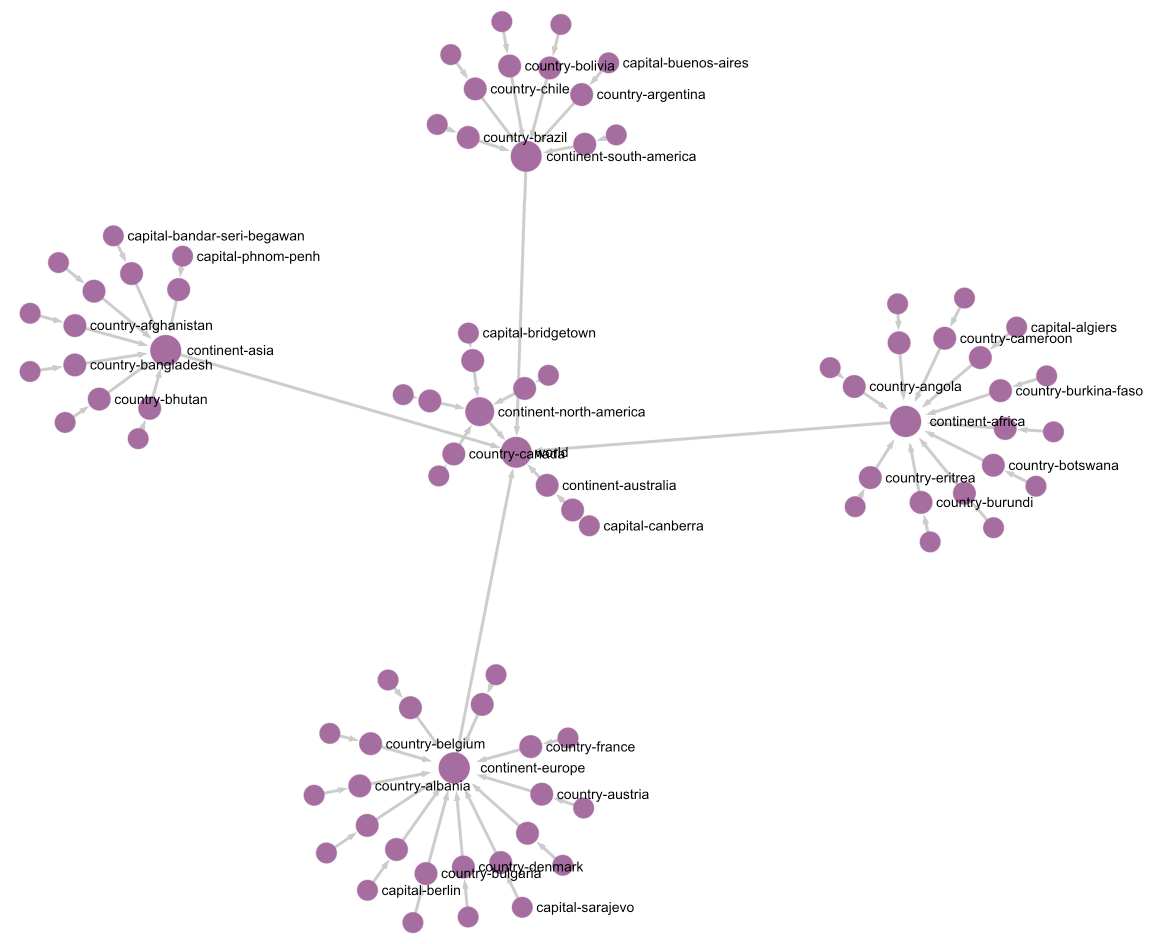Sample Dataset Graphs
Macrometa has several graphs based on sample datasets that you can create and use to explore the GDN graph functionality. When you create a graph based on sample datasets, Macrometa creates the named graph as well as collections loaded with vertex and edge data.
With the default "Search Depth" of 2 of the graph viewer, you might not see all edges of some graphs unless you load the full graph.
Create a Sample Dataset Graph
To create a sample dataset graph:
- In the Macrometa web console, navigate to Data > Graphs.
- Click New Graph, and then click Sample Datasets.
- Click Create next to the graph that you want to create. The graphs are described below.
The Route Planning Graph
This graph shows a set of european cities, and their fictional traveling distances as connections. The cities as vertices in two vertex collections - germanCity and frenchCity. The edges are their interconnections in several edge collections: frenchHighway, germanHighway, and internationalHighway.

The Social Graph
This graph shows a set of persons and their relations. Female and male person records are stored as vertices in two vertex collections - female and male. The edges are their connections in the relation edge collection.

The Traversal Graph
This graph was designed to demonstrate filters in traversals. It has some labels to filter on in it.

The example stores its vertices in the circles document collection and the edges in the edges edge collection.
The circles records have unique numeric labels. The edges have two boolean attributes (theFalse always being false, theTruth always being true) and a label sorting B - D to the left side, G - K to the right side. Left and right side split into paths - at B and G which are each direct neighbors of the root-node A. Starting from A the graph has a depth of 3 on all its paths.
The World Graph
The world country graph structures its nodes: world → continent → country → capital. In some cases, edge directions aren't forward (therefore it will be displayed disjunct in the graph viewer).
This graph can be used to demonstrate raw traversal operations. The vertices are stored in worldVertices, the edges are stored in worldEdges.
